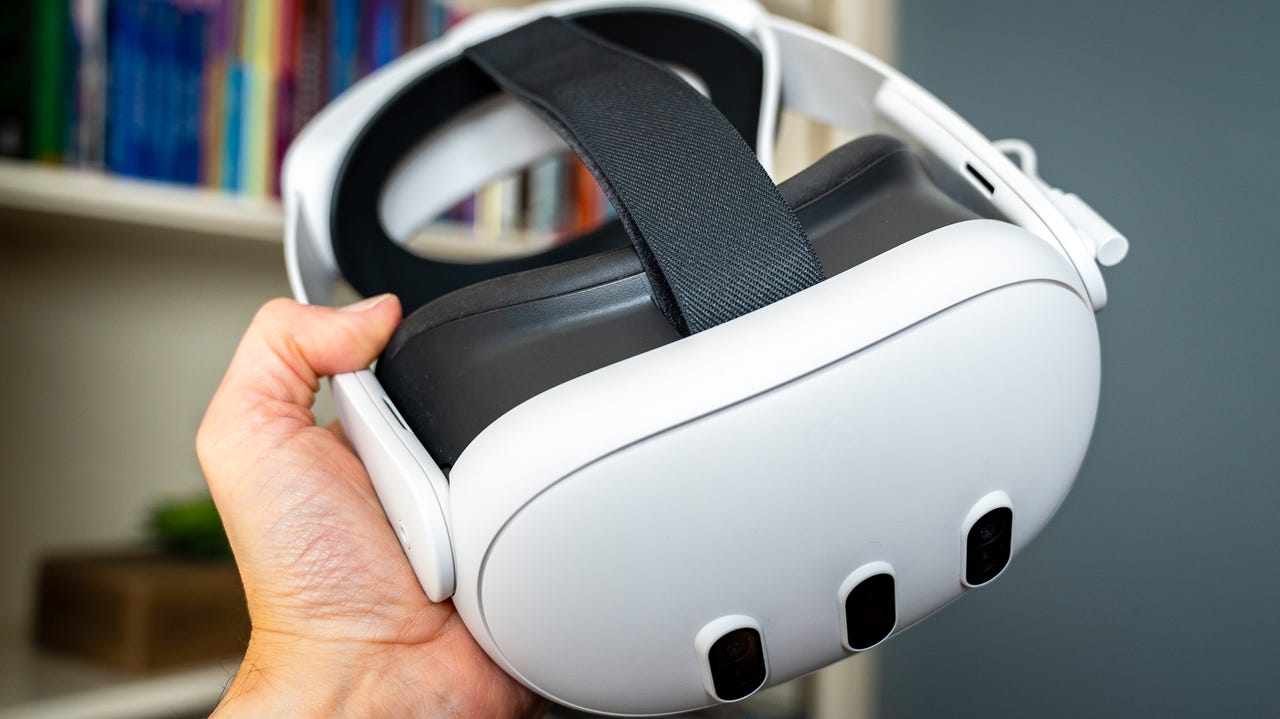
In a recent announcement at GDC 2024, Meta announced that retention numbers for the Meta Quest 3 are higher than any other version of the product. This means that more people are using the Meta Quest 3 — and using it regularly — than any previous version of the Oculus headset, including the Rift and Rift S.
Also: Meta Quest 3 review: The VR headset most people should buy in 2024
Historically, one of the challenges the VR industry has been faced with was finding a practical integration into the consumer space; some people still see VR headsets as a novelty or simply aren’t aware of their powerful (and practical capabilities).
But Meta’s Director of Content Ecosystem, Chris Pruett said that owners of the Meta Quest 3 are returning to the device to use on a regular basis by looking at app accessibility over time. This news could impact the industry by informing future iterations of headset design and features, as well as potentially influencing the decisions of competing manufacturers.
We touched on some of the reasons why users are sticking around in our review of the Meta Quest 3, including its extensive catalog of services, accessible price, and compact form factor, and it’s likely that a number of these factors contribute to the device’s sustained usability.
1. Improvements in all the right places
The most obvious reason for the higher retention of folks sticking with the Meta Quest 3 could be that the headset is simply better than previous iterations. With the Snapdragon XR2 Gen 2 processor, it has a more powerful chipset so apps load faster, they look better, and the device’s fast refresh rate and spatial video support contribute to a better experience.
Also: Who’s afraid of VR? I was – until I tried Meta Quest 3
In terms of its physical usability, this headset is far slimmer and lighter than previous (as well as competitors’) versions. VR headsets are infamously large, front-heavy, and unwieldy devices, but the Meta Quest 3’s agile form factor is much easier to balance, and as such, wear for a longer period of time. Additionally, the headset has an expanded field of view with its 4K+ Infinity Display pancake lenses, which significantly improve the detail and clarity of text and images.
2. Mixed reality experience
The Meta Quest 3’s emphasis on generating a quality mixed reality experience is also receiving a positive response, generating an impressive reproduction of your surroundings in a way that rivals Apple’s $3,500 Vision Pro, but at a fraction of the cost. This also contributes to improved passthrough, allowing users to leave the device on for longer and integrate with the apps they already know and use regularly.
3. A price point that sells
More than anything else, the Meta Quest 3‘s $500 price point might be somewhat of a sweet spot when it comes to usability. Users willing to drop the money on the headset may be more likely to stick with the product over time instead of using it once. At the same time, the price in comparison to Apple’s Vision Pro makes it far more accessible, and far less intimidating an investment.








